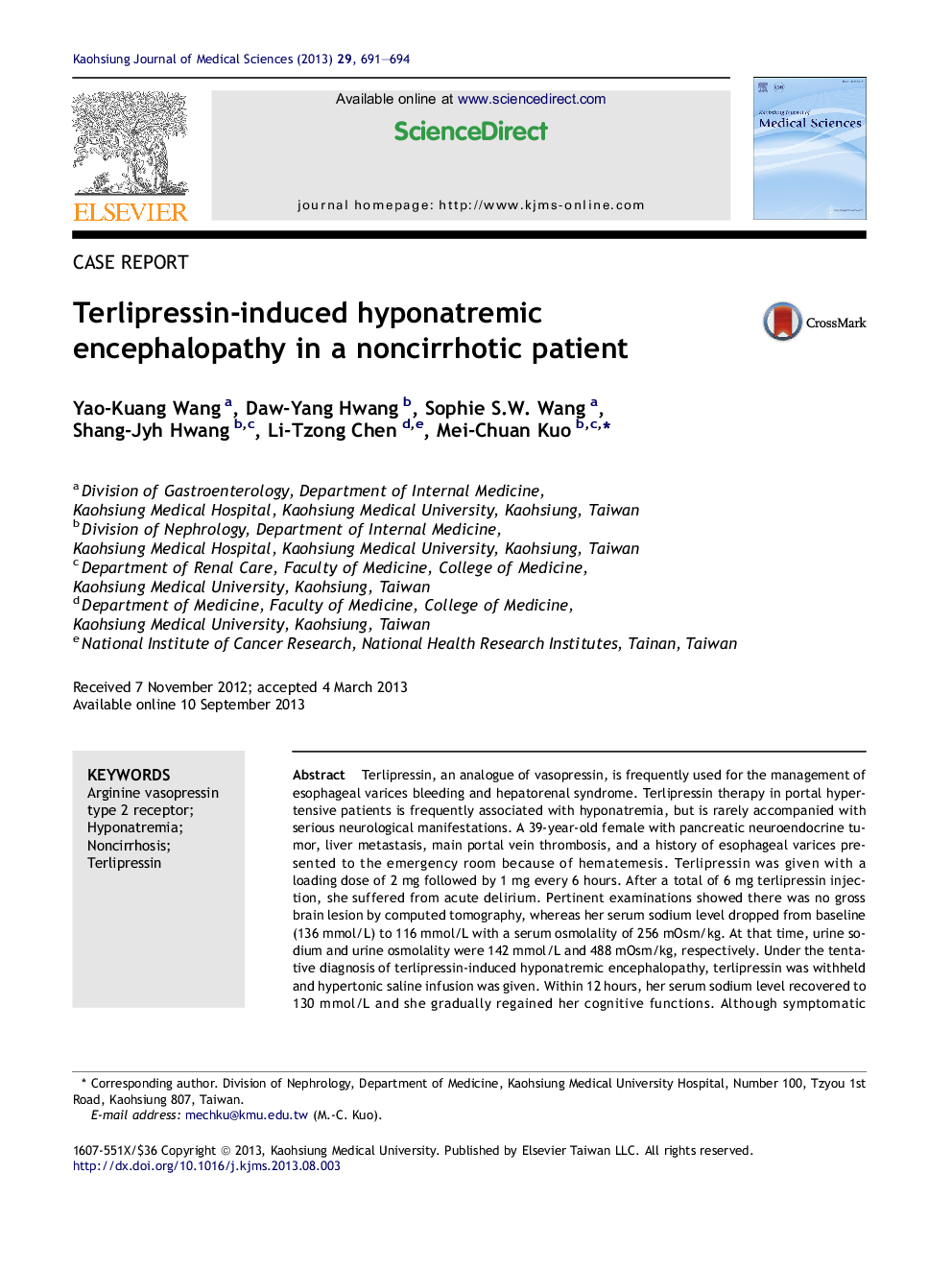| Article ID | Journal | Published Year | Pages | File Type |
|---|---|---|---|---|
| 3485939 | The Kaohsiung Journal of Medical Sciences | 2013 | 4 Pages |
Terlipressin, an analogue of vasopressin, is frequently used for the management of esophageal varices bleeding and hepatorenal syndrome. Terlipressin therapy in portal hypertensive patients is frequently associated with hyponatremia, but is rarely accompanied with serious neurological manifestations. A 39-year-old female with pancreatic neuroendocrine tumor, liver metastasis, main portal vein thrombosis, and a history of esophageal varices presented to the emergency room because of hematemesis. Terlipressin was given with a loading dose of 2 mg followed by 1 mg every 6 hours. After a total of 6 mg terlipressin injection, she suffered from acute delirium. Pertinent examinations showed there was no gross brain lesion by computed tomography, whereas her serum sodium level dropped from baseline (136 mmol/L) to 116 mmol/L with a serum osmolality of 256 mOsm/kg. At that time, urine sodium and urine osmolality were 142 mmol/L and 488 mOsm/kg, respectively. Under the tentative diagnosis of terlipressin-induced hyponatremic encephalopathy, terlipressin was withheld and hypertonic saline infusion was given. Within 12 hours, her serum sodium level recovered to 130 mmol/L and she gradually regained her cognitive functions. Although symptomatic hyponatremic encephalopathy is a rare complication of terlipressin treatment, close monitoring of serum electrolyte level is warranted in patients receiving terlipressin.
